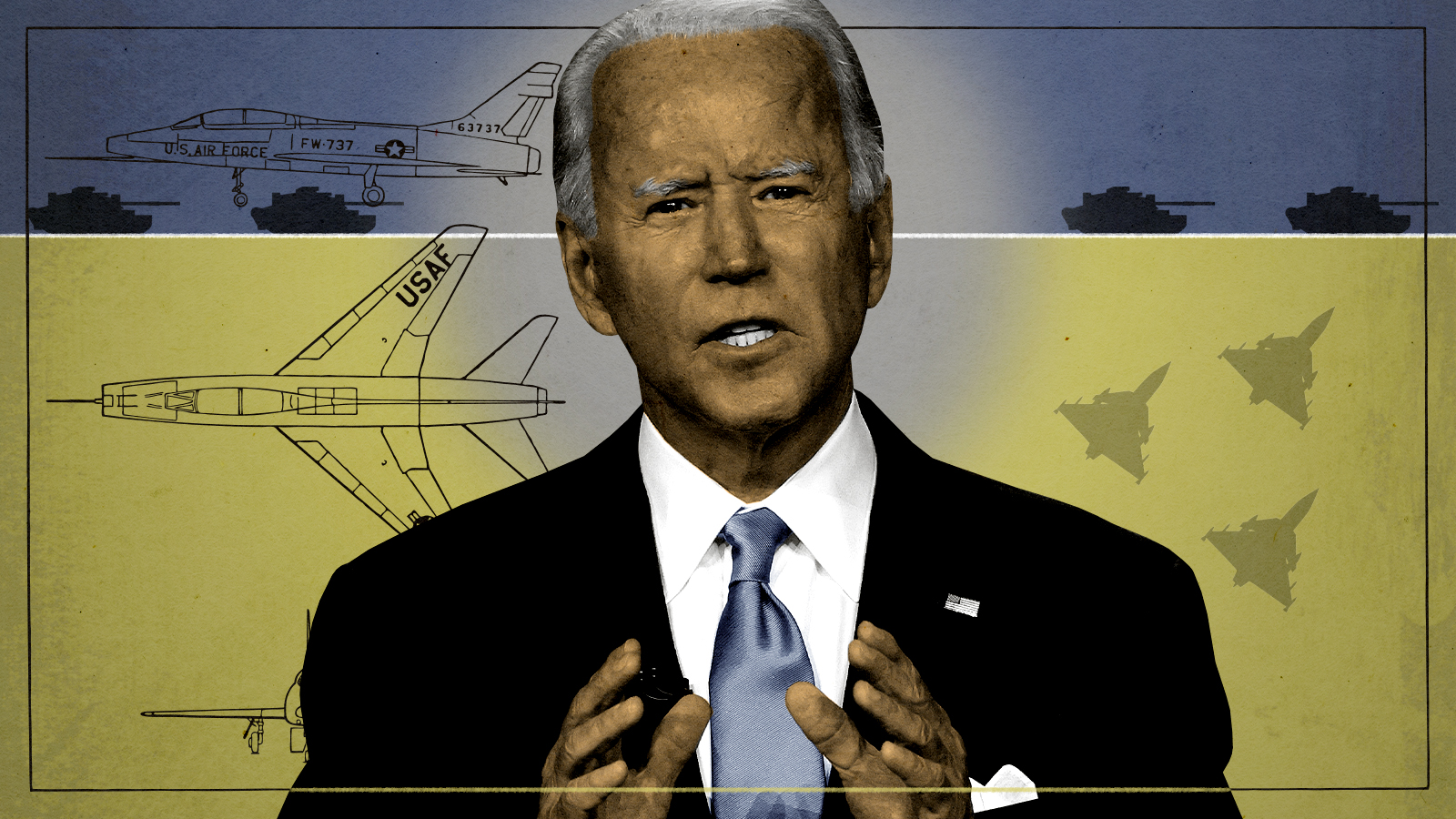Biden and Congress owe us a debate about Ukraine


A free daily email with the biggest news stories of the day – and the best features from TheWeek.com
You are now subscribed
Your newsletter sign-up was successful
The United States took another step toward entering the Ukraine war Tuesday night. In a 368-57 vote, the House of Representatives approved an additional $40 billion in aid for the embattled nation. Combined with a $13.6 billion package signed yesterday but passed several weeks ago, that's more than $50 billion in just a few months.
Even for the federal government, $50 billion is a significant amount of money. By comparison, it's over half the annual budget for the Department of Homeland Security. In fact, Congress beefed up the appropriation by more than $7 billion over the Biden administration's original request. The result will make Ukraine the largest recipient of U.S. aid this year by a factor of ten.
The money's not the main reason for concern, though. It's more important that the bill was delivered just hours before the vote and was passed with minimal debate. Rep. Chip Roy (R-Texas) was among the few to dissent on the floor, noting that he'd barely had time to review the contents. For most members, the vote was a rare opportunity for bipartisan self-congratulation.
The Week
Escape your echo chamber. Get the facts behind the news, plus analysis from multiple perspectives.

Sign up for The Week's Free Newsletters
From our morning news briefing to a weekly Good News Newsletter, get the best of The Week delivered directly to your inbox.
From our morning news briefing to a weekly Good News Newsletter, get the best of The Week delivered directly to your inbox.
That's not good enough for a measure that increases American involvement in a conflict with another nuclear power. Along with reports that U.S. intelligence has assisted Ukrainian efforts to target Russian generals, the aid package brings the United States closer to the status of a co-belligerent. The risks of a direct military clash with Russian forces are still low. But the situation increasingly resembles the one in Yemen, where the U.S. has provided varying measures of intelligence, logistical, and material support for Saudi operations since 2015. (In February, the Biden administration announced it would provide only defensive aid — which may be a distinction without a difference.)
Repelling aggression is a classic just cause, but it's worth remembering that Ukraine is not a treaty ally of the United States. The president and Congress have a duty to explain choices about whether and how to assist Ukraine to the public — especially when the risks of escalation are so high. In exchange for the $50 billion, with more requests likely to follow, our elected leaders owe us a serious debate about what the money will buy, what they hope to achieve, and how they plan to respond if events take a turn for the worse. The stakes are too high to leave our fate to sleepwalkers.
A free daily email with the biggest news stories of the day – and the best features from TheWeek.com
Samuel Goldman is a national correspondent at TheWeek.com. He is also an associate professor of political science at George Washington University, where he is executive director of the John L. Loeb, Jr. Institute for Religious Freedom and director of the Politics & Values Program. He received his Ph.D. from Harvard and was a postdoctoral fellow in Religion, Ethics, & Politics at Princeton University. His books include God's Country: Christian Zionism in America (University of Pennsylvania Press, 2018) and After Nationalism (University of Pennsylvania Press, 2021). In addition to academic research, Goldman's writing has appeared in The New York Times, The Wall Street Journal, and many other publications.
